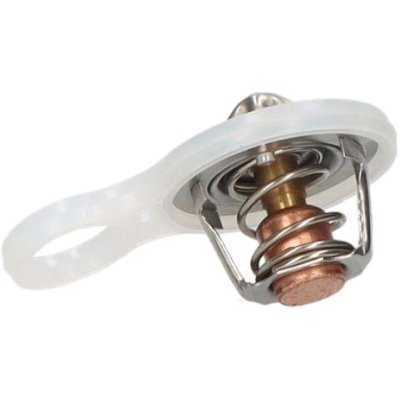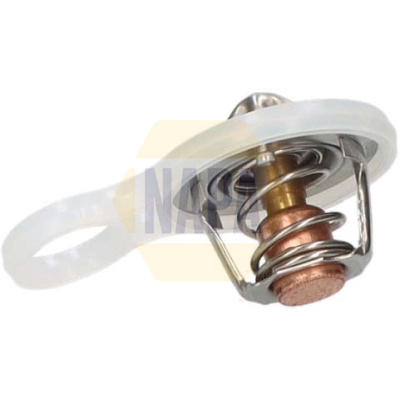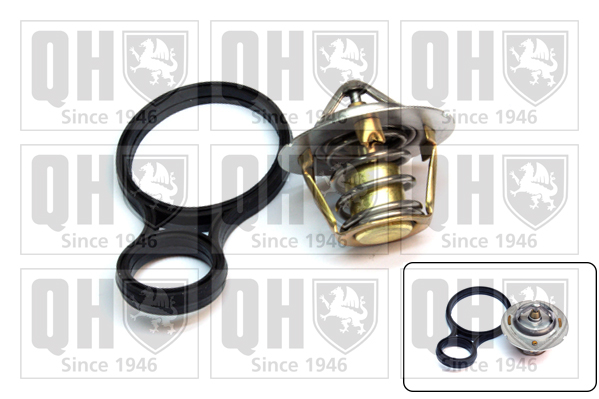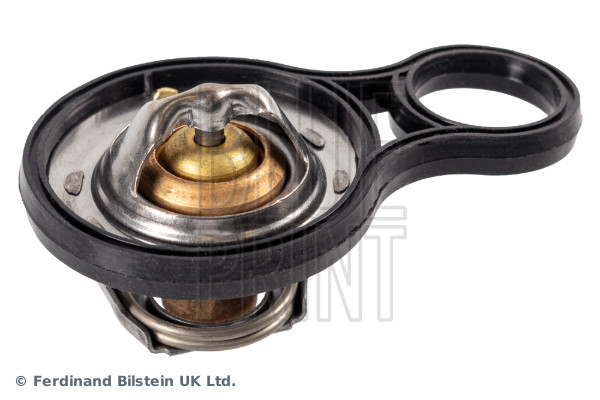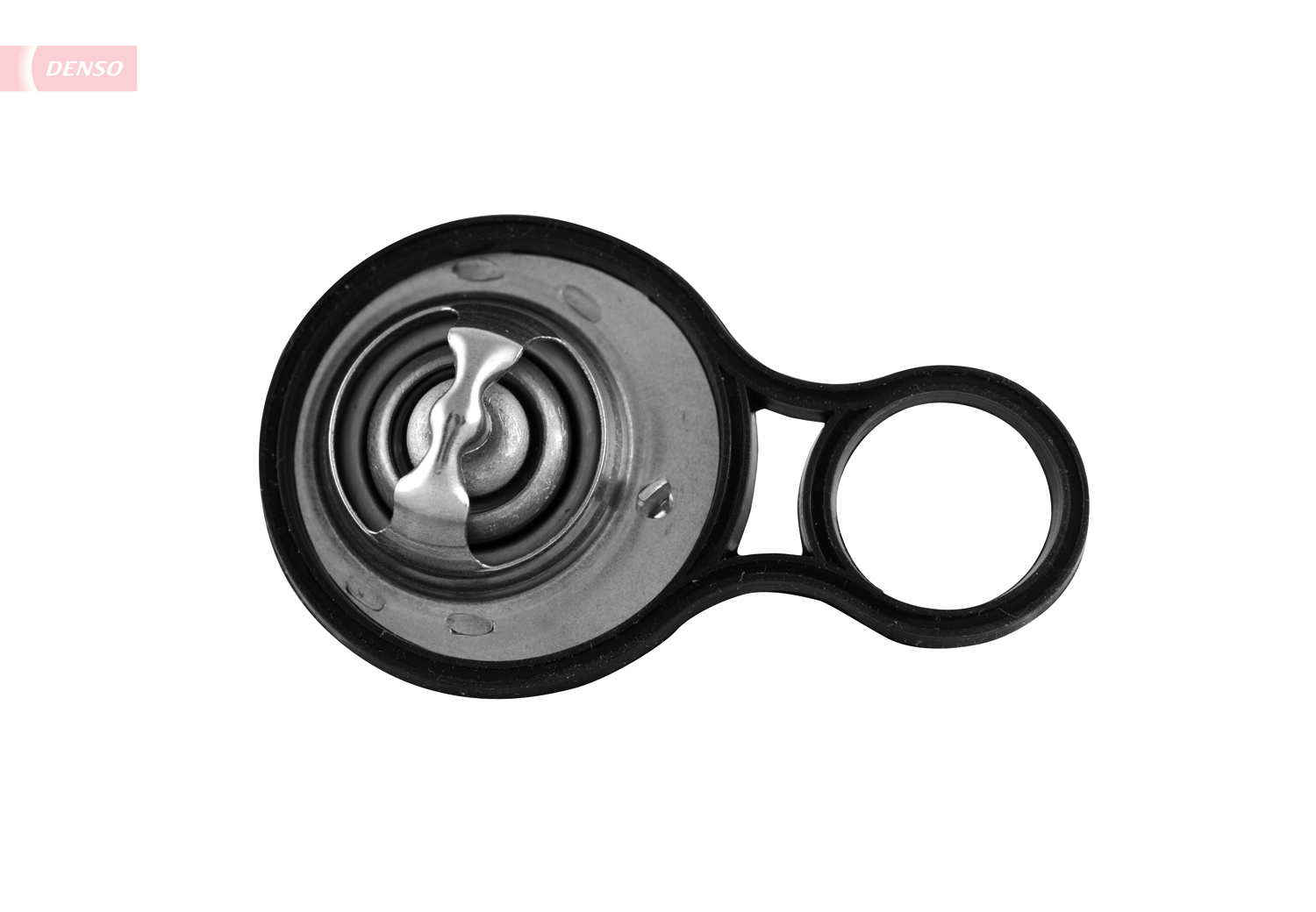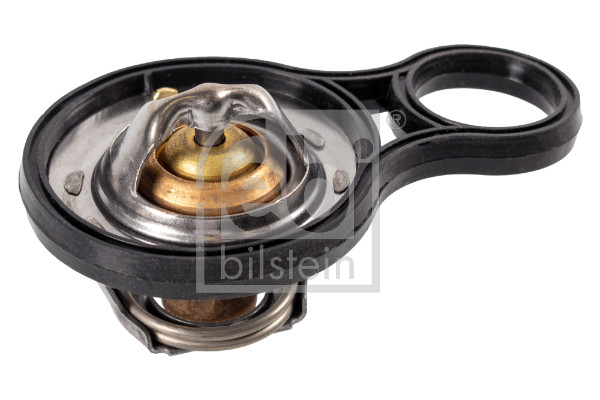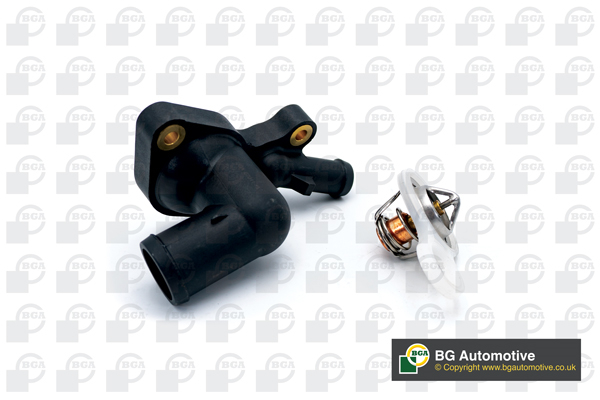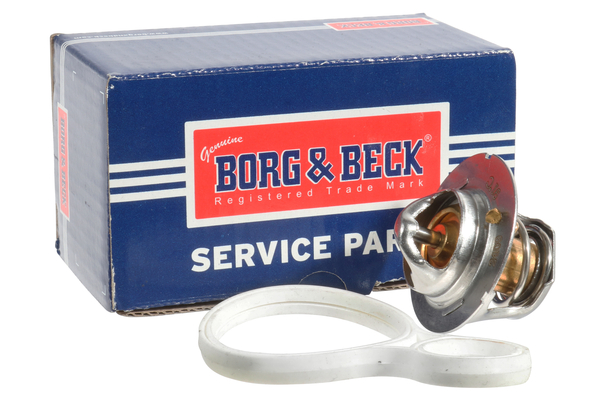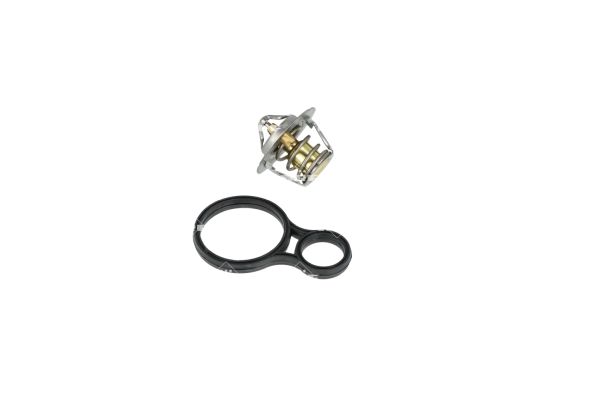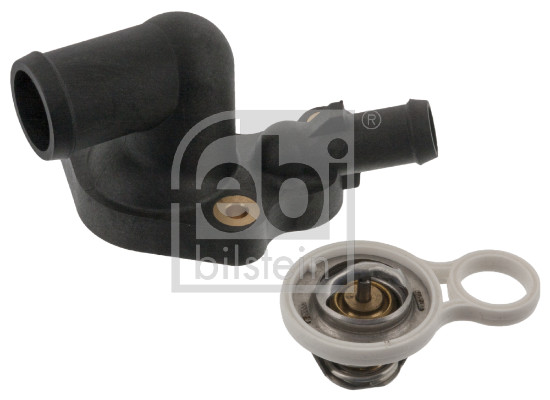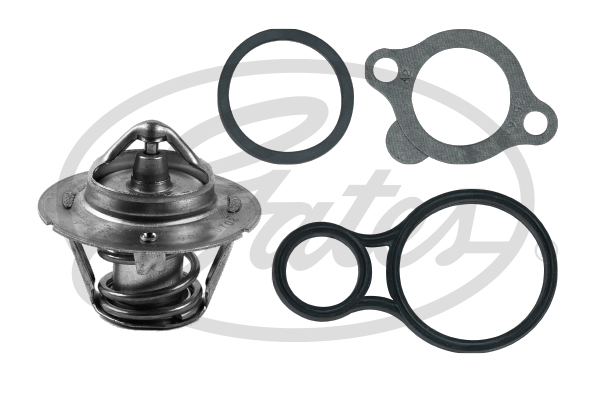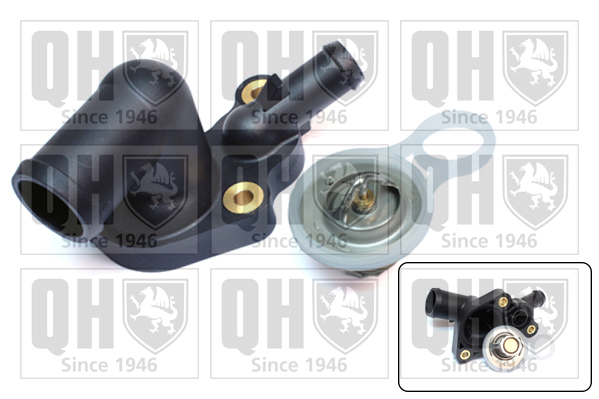Thermostat 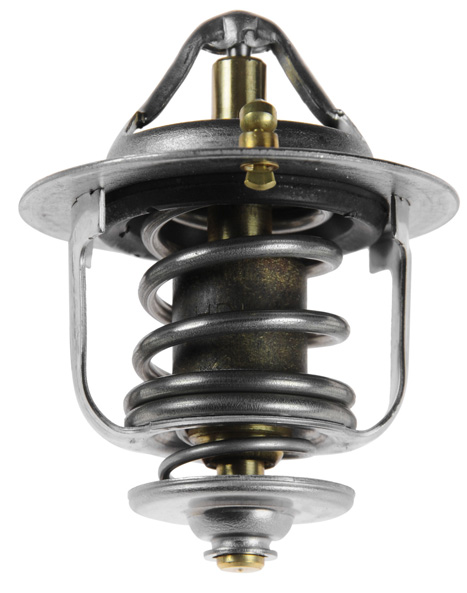
Fits MINI MINI Convertible (R52) Cooper S
(2004)
Important compatibility info
| Diameter 1 | 45.5 mm |
| Type | Thermostat, coolant |
| Opening Temperature | 91 °C |
| Function | Thermostat, coolant |
| Number of Seals | 1 |
| Additional Information | with gasket/seal |
| for OE number | 04495721 |
| Additional Information 2 | without sensor |
| Manufacturer | CHRYSLER JEEP MINI |
Important compatibility info
| Number of Seals | 1 |
| Additional Information | with gasket/seal |
| Additional Information 2 | without sensor |
| Diameter 1 | 45.5 mm |
| Opening Temperature | 91 °C |
| Type | Thermostat, coolant |
| Function | Thermostat, coolant |
| for OE number | 04495721 |
Important compatibility info
| Housing Type | without housing |
| Opening Temperature | 91 °C |
| Additional Information | with gasket/seal |
| Function | Thermostat, coolant |
| Height | 24 mm |
| Diameter | 46 mm |
| Type | Thermostat, coolant |
Important compatibility info
| Outer diameter | 46 mm |
| Opening Temperature | 91 °C |
| Function | Thermostat, coolant |
| Additional Information | with gasket/seal |
| Type | Thermostat, coolant |
| Seal Material | EPDM (ethylene propylene diene Monomer (M-class) rubber) |
Additional Information
General Information
These products are designed to be used as originally intended and not modified for purpose. Please ensure the products are installed by a competent individual. N.B. products are usually supplied without fitting instructions.
Important compatibility info
| Weight | 53 g |
| Additional Information | with gaskets/seals |
| Opening Temperature | 91 °C |
| for OE number | 11531485847 |
| Type | Thermostat, coolant |
| Function | Thermostat, coolant |
| Gross Weight | 75 g |
Important compatibility info
| Outer diameter | 46 mm |
| Opening Temperature | 91 °C |
| Function | Thermostat, coolant |
| Seal Material | EPDM (ethylene propylene diene Monomer (M-class) rubber) |
| Additional Information | with gasket/seal |
| Type | Thermostat, coolant |
Additional Information
General Information
These products are designed to be used as originally intended and not modified for purpose. Please ensure the products are installed by a competent individual. N.B. products are usually supplied without fitting instructions.
Important compatibility info
| Opening Temperature | 91 °C |
| Housing Type | with housing |
| Type | Thermostat, coolant |
| Function | Thermostat, coolant |
Important compatibility info
| Housing Type | without housing |
| Opening Temperature | 91 °C |
| Additional Information | with gaskets/seals |
| Function | Thermostat, coolant |
| Type | Thermostat, coolant |
Important compatibility info
| Additional Information 2 | with seal ring |
| Opening Temperature | 91 °C |
| Housing Type | without housing |
| Type | Thermostat, coolant |
| Function | Thermostat, coolant |
| Extra Description | EASY FIT |
Important compatibility info
| Opening Temperature | 91 °C |
| Function | Thermostat, coolant |
| Type | Thermostat, coolant |
| Additional Information | with gasket/seal |
| Housing Type | with housing |
Additional Information
General Information
These products are designed to be used as originally intended and not modified for purpose. Please ensure the products are installed by a competent individual. N.B. products are usually supplied without fitting instructions.
Important compatibility info
| Opening Temperature | 91 °C |
| Material | Metal |
| Housing Type | without housing |
| Function | Thermostat, coolant |
| Additional Information | with gaskets/seals |
| Type | Thermostat, coolant |
Important compatibility info
| Additional Information | with gasket/seal |
| Opening Temperature | 91 °C |
| Function | Thermostat, coolant |
| Type | Thermostat, coolant |
Additional Information
- 1x Quinton Hazell Thermostat, coolant (QTH612K)
- 1x Quinton Hazell Coolant Flange (QTH832CF)
What is a engine thermostat?
An engine thermostat is a valve like device responsible for the control of the water / coolant when the engine reaches a specific temperature. A correctly functioning thermostat is important for the engine to reach its optimum operating temperature which improves efficiency and reduces engine wear.
There are different types of engine thermostat. These are:
Conventional thermostat
Electrically heated thermostats
Electrically actuated thermostats
What comes with a thermostat?
Engine thermostats are available with a number of different additional parts included however these vary depending on the aftermarket maker and the requirements of the vehicle.
The parts that come with a thermostat are normally shown in the stock image or are listed in the parts notes. Items that can be included are:
Gasket or seal
Housing or flange
Sensor or switch
How do I choose the correct thermostat?
There are different temperature ratings for engine thermostats. These rating show the temperature that the thermostat operates. Often the temperature ratings are different depending on the climate of the country the car is destined for. The temperature rating is often noted on the thermostat itself which can be useful when selecting a replacement. There can be different thermostats listed as compatible and unless you compare the original part number it can be unclear which is the correct one.
Here are some factors to consider:
Manual or automatic transmission
Temperature rating (°C)
Vehicle manufacture date (this is not the date the vehicle was registered but the date it was made
Engine number sequence (up to or after as specific number/letter
VIN (chassis number) sequence (up to or after as specific number/letter
What brand of thermostat should I choose?
There are many aftermarket makers of thermostats so there are plenty of options. Makers such as Valeo, Sachs and Bosch make parts for the original vehicle manufacturers so these would be classed as premium. Aftermarket brands such as Gates, Febi, Blue Print and Quinton Hazell offer long warranties which is a great indicator of quality. The choice is largely down to your budget and the brand you are comfortable with.
How can I tell my thermostat needs replacing?
A faulty engine thermostat will cause problems with how your engine heats up. If you are not sure if you have a faulty thermostat we’d advise that you speak to a qualified mechanics however here are some symptoms of a faulty or failing thermostat:
Engine overheating
Engine takes a long time to warm up
Heater takes a long time to produce heat
Erratic engine temperatures
Coolant leaking
 Proud to be a UK-based company
Proud to be a UK-based company Contact us
Contact us